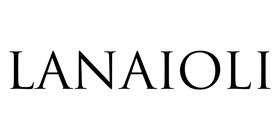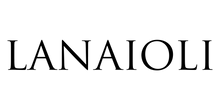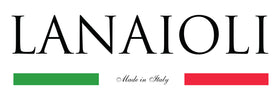In 1300s Florence, the Lanaioli were members of the Corporation (or Guild) of the Arte della Lana. This corporation brought together all the organizations involved in wool processing, from selection, through carding and combing, to spinning and the final creation of clothing items.
In medieval Florence, the Arts held power, excluding the nobility. The Arte della Lana contributed significantly to the economic expansion of the Florentine city, with productions reaching peaks of 10% coverage of the wool demand of the entire Western world at that time.
Our entrepreneurial journey starts here: yesterday as today in our country, some specific skills that have made the history of textile manufacturing over the centuries have remained unchanged and indeed have been strengthened.
The rediscovery of artisanal productions and the creation of textile products of High Quality necessarily involves Know-how that, in Italy, dates back centuries.
In the era of large-scale production and standardization, our project stands out for its human approach, emphasizing the skills and knowledge of the individual. We prioritize attention to detail, typical of artisanal production, rather than the mass production of industrial machines.
Our energies are also devoted to providing men and women who work diligently on our garments with a selection of yarns that is careful and meticulous. For this reason, we source only from the best spun wool producers in Italy, undisputed world leaders in this market.
For us Lanaioli, the passion for the Quality of workmanship and raw materials is unquestionable; it is a choice in which we do not want to compromise.
Our emphasis on the ability to create recalls the idea of homo faber, both as a craftsman capable of creating high-quality clothing with creative effort, and as an individual who creates and determines their own destiny.
Since the establishment of our project, we have desired not only to do business, produce and sell garments, but to be part of the change in our sector; for this reason, we embraced the idea of starting a collection of garments made from Regenerated Yarns.
Cashmere is the finest yarn with which we make our garments, available to all Customers who appreciate its unique characteristics. Moreover, from the start, we have created a line in 100% Regenerated (or recycled) Cashmere, in no way inferior in Quality to Pure Cashmere.
Attention to a sustainable business project does not stop at recovering recycled material, but in our idea continues to involve stakeholders in a short supply chain at Km0 of wool in the medium term.
Italian wool production from sheep and goat farms has become increasingly low over the years, almost disappearing: for a long time, the fibers that make up our garments have come from remote regions of the world. Just think of Merino wool, which mainly comes from Australia, or Cashmere itself, which originates in the eponymous Kashmir region between India and Pakistan and later spread elsewhere.
Here we stubbornly step in with the start of a collaboration with breeders, fiber processing companies, textile production companies, and institutions to promote the production of local and sustainable animal fibers, at km 0.
The saving of water, electricity, fuel for transport, and the related CO2 emissions from all the production and travel steps required to bring a garment into our wardrobes would be truly enormous, and we also want to contribute to change.
We want our Customers not only to be buyers of excellently crafted garments, attentive to details and passionate about quality like us, but also to become co-protagonists of a visionary project. The ultimate goal of this project is the dignity of work, saving natural resources, and the revival of true Made in Italy, from raw material to finished product.
Lanaioli wants to contribute to retracing and making even greater the vision and experience of the founders of the ancient Art of Wool.
We share the idea of business only if it is represented by responsible choices where Values, Man, and the Environment come before business.







